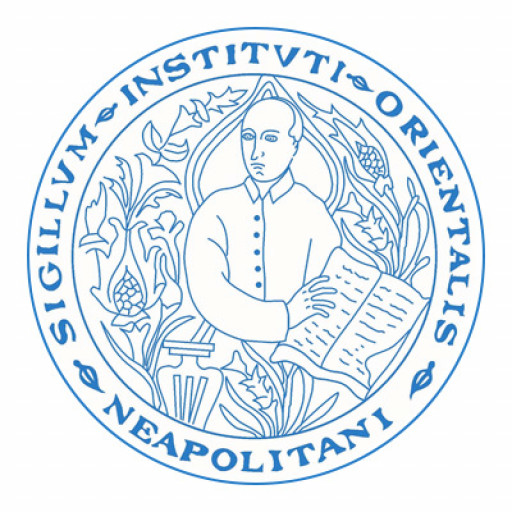Photos of university / #uchicago
Degree Programme: Comparative Human Development at The University of Chicago
The Comparative Human Development program at The University of Chicago offers students an interdisciplinary and comprehensive exploration of human behavior, social institutions, and cultural diversity across different societies and historical periods. This program is designed to foster critical thinking, research skills, and a nuanced understanding of the complexities that shape human life worldwide. Students in this program engage with a broad range of topics, including developmental psychology, cultural anthropology, sociology, cognitive science, public policy, and economics, enabling them to analyze human development from multiple perspectives.
The curriculum emphasizes both theoretical frameworks and empirical research, encouraging students to critically evaluate existing literature and conduct their own investigations into human development issues. Students have opportunities to participate in fieldwork, data collection, and community engagement projects, which deepen practical understanding and provide real-world experience. The program also promotes an appreciation for cultural diversity and the importance of context in interpreting human behavior, fostering global awareness and sensitivity among its students.
Undergraduate students pursuing a major or minor in Comparative Human Development benefit from a flexible program structure that allows customization of coursework to match their individual interests and career goals. The program prepares graduates for diverse career paths, such as research, social policy, public health, education, international development, and nonprofit work. Moreover, it provides a strong foundation for students intending to pursue advanced degrees in related fields, including anthropology, psychology, sociology, law, and public policy.
Faculty members dedicated to innovative research and teaching support students throughout their academic journey. They are involved in cutting-edge projects examining issues such as childhood development, social inequality, mental health, and cross-cultural communication. The program also encourages participation in seminars, colloquia, and conferences to enhance scholarly engagement and professional development.
In addition to classroom learning, students have access to the University of Chicago’s extensive resources, including libraries, research centers, and partnerships with community organizations. The campus environment promotes intellectual curiosity, diversity, and inclusion, making it a vibrant setting for studying human development in all its facets. Graduates of the Comparative Human Development program leave equipped with critical thinking skills, cultural competency, and research expertise, positioning them to address complex societal challenges and contribute meaningfully to their chosen fields.
A two-quarter introductory sequence in Comparative Human Development should be completed prior to the Spring Quarter of a student’s third year. CHDV 20000 Introduction to Human Development focuses on theories of development, with particular reference to the development of the self in a social and cultural context. CHDV 20100 Human Development Research Designs in Social Sciences focuses on modes of research and inquiry in human development, including basic concepts of research design and different methods used in studying human development (e.g., ethnography, experiments, surveys, discourse analysis, narrative inquiry, and animal models). Consideration is given to the advantages and limitations of each approach in answering particular questions concerning person and culture.
Methods
Students must complete one quantitative or one qualitative Methods course or one research methods (or statistics) course in a related department. Courses that are not on the following list may be petitioned to count for Methods (see Petitions below).
The following are courses since 2012 that have fulfilled the Methods requirement without a petition:
- STAT 20000 Elementary Statistics
- STAT 22000 Statistical Methods and Applications
- PSYC 20100 Psychological Statistics
- CHDV 20101 Applied Statistics in Human Development Research
- CHDV 20405 Pornography and Language
- CHDV 26228 Ethnographic Methods
- CHDV 29301 Qualitative Research Methods
- CHDV 30102 Introduction to Causal Inference
- CHDV 32411 Mediation, Moderation, and Spillover Effects
- CHDV 37802 Challenging Legends and Other Received Truths: A Socratic Practicum
Distribution
Students must complete one course in each of three of the four areas below. These three courses must be taught within the Department of Comparative Human Development and must be designated as fulfilling the particular distribution requirement. (Example topics and courses within each area are listed.)
A. Comparative Behavioral Biology: includes courses on the biopsychology of attachment, evolutionary social psychology, evolution of parenting, biological psychology, primate behavior and ecology, behavioral endocrinology
Courses since 2012 that have fulfilled area A:
- PSYC 20300 Biological Psychology
- CHDV 21500 Darwinian Health
- CHDV 21800 Primate Behavior and Ecology
- CHDV 22201 Developmental Biopsychology
- CHDV 23249 Animal Behavior
- CHDV 26227 Neuroscience and the Social Sciences
- CHDV 26232 Comparative Cognitive Development
- CHDV 26660 Genes and Behavior
- CHDV 27950 Evolution and Economics of Human Behavior
- CHDV 30901 Biopsychology of Sex Differences
- CHDV 34800 Kinship and Social Systems
- CHDV 37500 Research Seminar in Animal Behavior I
- CHDV 37502 Research Seminar in Animal Behavior II
- CHDV 37503 Research Seminar in Animal Behavior III
- CHDV 37850 Evolutionary Psychology
B. Life Course Development: includes courses on developmental psychology; introduction to language development; psychoanalysis and child development; development through the life-course; the role of early experience in development; sexual identity; life-course and life story; adolescence, adulthood, and aging; the study of lives
Courses since 2012 that have fulfilled area B:
- CHDV 20150 Language and Communication
- CHDV 20207 Race, Ethnicity, and Human Development
- CHDV 20209 Adolescent Development
- CHDV 21000 Cultural Psychology: Philosophical and Theoretical Foundations
- CHDV 21901 Language, Culture, and Thought
- CHDV 23900 Introduction to Language Development
- CHDV 25900 Developmental Psychology
- CHDV 26226 Becoming Adult in Postmodern Context(s)
- CHDV 26233 Critical Approaches to Child Mental Health
- CHDV 26235 Life Course Development
- CHDV 30405 Anthropology of Disability
- CHDV 30301 Research on Contextualized Learning, Cognition, and Development
C. Culture and Community: includes courses on cultural psychology; psychological anthropology; social psychology; cross-cultural child development; language, culture, and thought; language socialization; psychiatric and psychodynamic anthropology; memory and culture
Courses since 2012 that have fulfilled area C:
- CHDV 20150 Language and Communication
- CHDV 20207 Race, Ethnicity, and Human Development
- CHDV 20405 Pornography and Language
- CHDV 21000 Cultural Psychology: Philosophical and Theoretical Foundations
- CHDV 21401 Introduction to African Civilization II
- CHDV 21901 Language, Culture, and Thought
- CHDV 23204 Medical Anthropology
- CHDV 23301 Culture, Mental Health, and Psychiatry
- CHDV 26000 Social Psychology
- CHDV 26228 Ethnographic Methods
- CHDV 26233 Critical Approaches to Child Mental Health
- CHDV 27501 Local Bodies, Global Capital
- CHDV 27821 Urban Schools and Communities
- CHDV 30302 Problems of Public Policy Implementation
- CHDV 30320 Violence and Trauma
- CHDV 30405 Anthropology of Disability
- CHDV 32100 Culture, Power, Subjectivity
D. Mental Health and Personality: includes courses on personality theory and research; social and cultural foundations of mental health; modern psychotherapies; psychology of well-being; conflict understanding and resolution; core concepts and current directions in psychopathology; emotion, mind, and rationality; body image in health and disorder; advanced concepts in psychoanalysis
Courses since 2012 that have fulfilled area D:
- CHDV 20209 Adolescent Development
- CHDV 23204 Medical Anthropology
- CHDV 23301 Culture, Mental Health, and Psychiatry
- CHDV 23620 Medicine and Anthropology
- CHDV 23800 Theories of Emotion and the Psychology of Well Being
- CHDV 26233 Critical Approaches to Child Mental Health
- CHDV 26310 Vulnerability and Human Rights
- CHDV 27700 Modern Psychotherapies
- CHDV 30320 Violence and Trauma
- CHDV 30405 Anthropology of Disability
- Application
- Personal Statement
- Application Fee or Automatic Fee Waiver
- Secondary School Report and Transcript
- Two Teacher Evaluations
- Standardized Test Scores. We understand that access to the SAT and ACT is not available in all countries. While we hope that you will make your best effort to take one of these tests if you can, we will give full consideration to the applications without an ACT or SAT score from students in these countries.
- Midyear Report (first-year applicants only)
- English Language Proficiency Test Scores (international applicants only). The University of Chicago only admits students who have demonstrated a superior level of English language competence: we strongly recommend a score of 100 or higher on the Internet-Based TOEFL or 600 or higher on the Paper-Based TOEFL. Minimum required scores on the IELTS (students must take the Academic test, not the General Training test) are an overall score of 7, with subscores of 7 each. The minimum acceptable score on the PTE is 70.
- College Official's Report and Transcript (transfer students only)
- Financial Aid Application
- Interview
Scholarships
First-year international applicants are eligible for both need-based and merit-based aid.
The Program in Comparative Human Development at the University of Chicago offers an interdisciplinary approach to understanding human behavior, societies, and cultures across different historical and cultural contexts. The program emphasizes the integration of perspectives from various disciplines such as anthropology, psychology, sociology, philosophy, and history to provide students with a comprehensive understanding of human development. Students engage in rigorous coursework that explores topics including cultural variation, social institutions, cognition, emotion, and the development of individual and collective identities. The curriculum encourages critical thinking and methodological diversity, incorporating qualitative and quantitative research methods, ethnography, and data analysis.
The program aims to cultivate scholars who can analyze complex social phenomena and contribute to pressing global issues related to development, inequality, and cultural change. It offers both undergraduate and graduate degrees, with PhD tracks designed to prepare students for careers in academia, research, policy analysis, and social advocacy. Students have opportunities for close mentorship from faculty members renowned for their expertise in cross-cultural studies, human development, and social sciences. The program also promotes collaborative research and interdisciplinary dialogue, fostering a vibrant academic community.
Facilities at the university support this intellectual environment, providing access to extensive libraries, research centers, and fieldwork opportunities across diverse communities. The program emphasizes experiential learning, encouraging students to undertake ethnographic studies, participate in seminar series, and present research at national and international conferences. Graduates of the program are well-equipped with a nuanced understanding of human developmental processes, enabling them to contribute meaningfully to academic scholarship and social policy initiatives. Overall, the Program in Comparative Human Development at the University of Chicago offers a unique and rigorous academic experience dedicated to exploring the complexities of human life in its many forms.







